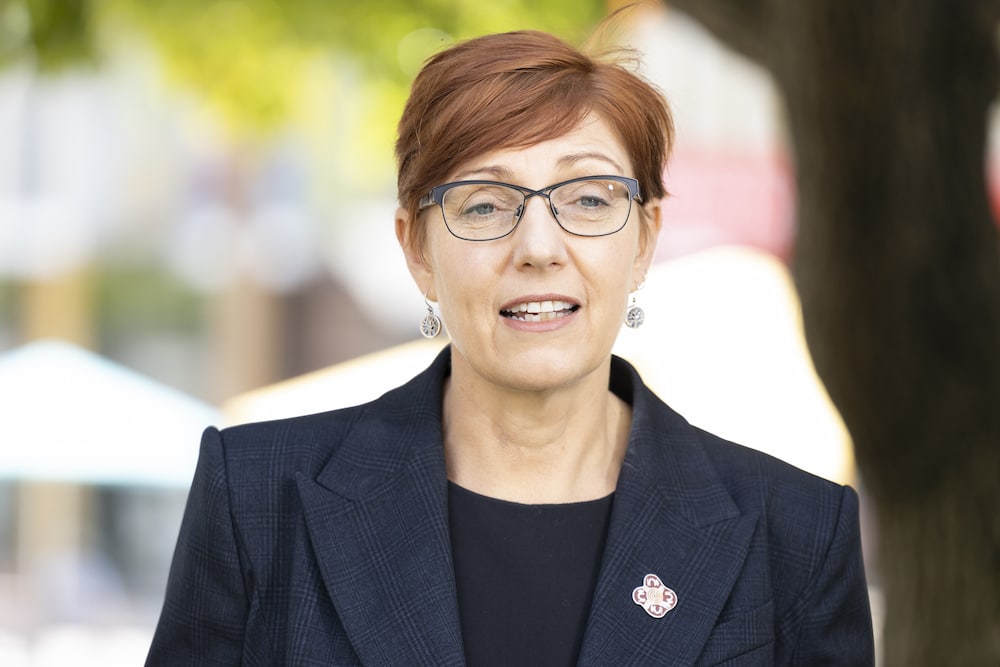The ACT Government will decriminalise small amounts of some illicit drugs, ACT Health Minister Rachel Stephen-Smith announced today, tabling the response to Labor MLA Michael Pettersson’s drugs reform bill.
Mr Pettersson’s bill, introduced early last year, argued that drug use should be treated as a health issue, not a criminal one. His bill proposed that those caught in possession would pay a Simple Drug Offence Notice fine and be referred to a health professional, rather than facing a two-year prison sentence.
- Committee recommends passing Pettersson’s drug reform bill (November 2021)
- Pettersson introduces drug reform bill to the Assembly (February 2021)
- Pettersson: Hard drug use a public health, not criminal justice, issue (December 2020)
Under the proposed government amendments, an Illicit Drug Diversion program will be available as a health-based alternative to paying the fine, Ms Stephen-Smith said.
The reforms would include a 12-month implementation program to train police and review administrative arrangements.
Police would still be able to fine, divert, or caution offenders as appropriate, and prosecute people for other offences that occurred at the same time as the drug possession offence.
The legislation will be reviewed after three years to ensure it is fit for purpose and has not had unintended consequences.
“The amended Bill will continue our journey to genuinely treating drug use primarily as a public health matter, rather than through the criminal justice system,” Ms Stephen-Smith said.
“My hope is that this will help to reduce the stigma experienced by people who use illicit drugs, encouraging more people coming forward to receive support.”
The ACT has one of the highest rates of diversion from the criminal justice system for drug possession offences in Australia, Ms Stephen-Smith noted. In 2019–20, the rate of clients receiving treatment was the second highest in Australia, double the national average.
A 2021 YourSay survey showed that Canberrans overwhelmingly support drug decriminalisation; only 10 per cent believe people found in possession of drugs should be imprisoned.
The ACT Government will continue to take a strong stance against drug dealers, Ms Stephen-Smith stated. Thresholds for trafficking offences will not change, and dealers and traffickers will be prosecuted.
Mr Pettersson welcomed the government’s response, saying it vindicated what drug law experts had said for many years: “All governments must look to a more sensible and measured approach to addressing drug use in the community.
“Drug use is a public health problem; I know this, and Canberrans know this. I believe that the proposed model is a sensible one that the overwhelming majority of Canberrans will support.
“As a community, we need to encourage people who use drugs to seek the medical help that they need. I want to see people getting help from doctors, not being put in handcuffs.
“The response today is a significant step towards harm minimisation. I’m looking forward to working with my parliamentary colleagues to schedule this bill for debate in the Assembly.”
Greens MLA Johnathan Davis, spokesperson for drug harm minimisation, was also pleased.
“While we know that the majority of Canberrans support drug decriminalisation and only one in 10 people support imprisonment for drug possession offences, I understand some in our community remain concerned about this reform,” he said.
“I want the community to know that I once held very conservative views on this issue having cared for a close family member who struggled with drug use. Through listening, learning, and engaging with the evidence, I am proud to have changed my views and overtime, I have become a passionate advocate for drug law reform that is focussed on harm reduction.”
Mr Pettersson’s bill is supported by ATODA, families of drug victims, and by the Uniting Church, but some Liberal politicians, senior police officers, and Drug Free Australia have opposed it.
- Police chief: Decriminalising drugs would make society ‘far more dangerous’ (February 2022)
- ACT drug decriminalisation push hits cul-de-sac (January 2022)
- Remembrance ceremony urges drug law reform (October 2021)
- Church hails ACT drug decriminalisation bill as a breakthrough (February 2021)
- Drugs peak body welcomes Pettersson’s decriminalisation bill (December 2020)
Other ACT drug measures
The ACT will also start running a six-month pilot of a pill testing service later this month, to limit the dangers of illicit drug use. A nurse will provide health advice to clients, whether or not they choose to have drugs tested.
“Pill testing is intended to encourage choices that reduce overall drug use and the harms associated with taking drugs,” Ms Stephen-Smith said.
“However, even with pill testing, it remains risky and dangerous to consume illicit drugs, and clients of the service will not ever be told their drugs are safe.”
Under the ACT Government’s Drug Strategy Action Plan 2018–21, Ms Stephen-Smith reported, the government had spent close to $20 million in drug and alcohol treatment and harm reduction.
It had established the Directions Health Services Mobile Primary Care Outreach Clinic, and the ACT Drug and Alcohol Sentencing List. The ACT became the first Australian jurisdiction to remove criminal penalties for adult personal possession of cannabis. It adopted the national real-time prescription monitoring system, Canberra Script. Canberra Health Services opened a Northside Opioid Treatment Service in 2020.
The government expanded the nation-leading naxoloene program, and provided more than $1.5 million so people could access opioid treatment medications even when in isolation. It published the feasibility study for a medically supervised injecting feasibility. It finalised the Aboriginal and Torres Strait Islander Alcohol and Other Drug Residential Rehabilitation Model of Care, in partnership with Winnunga Nimmityjah.
The draft for the new Action Plan will be released soon.



